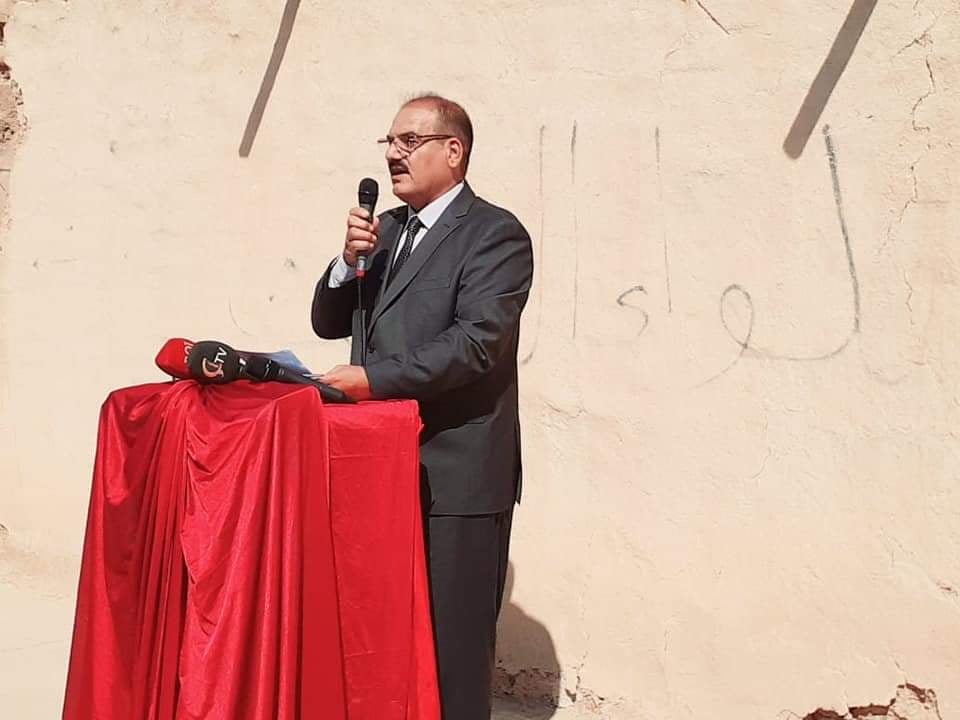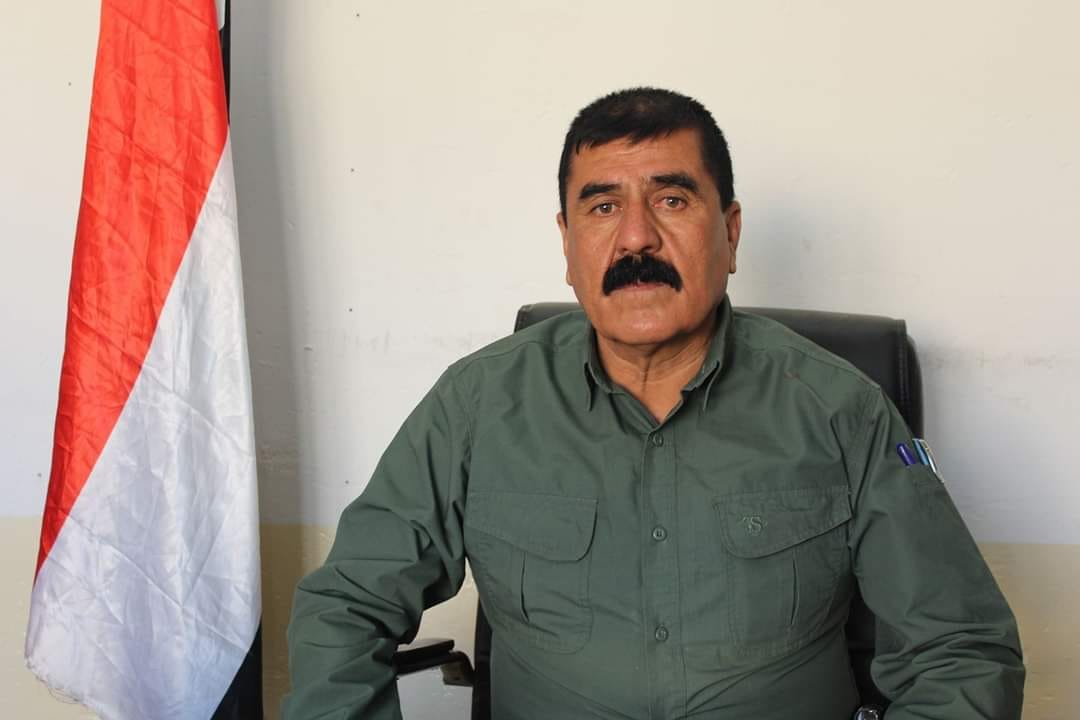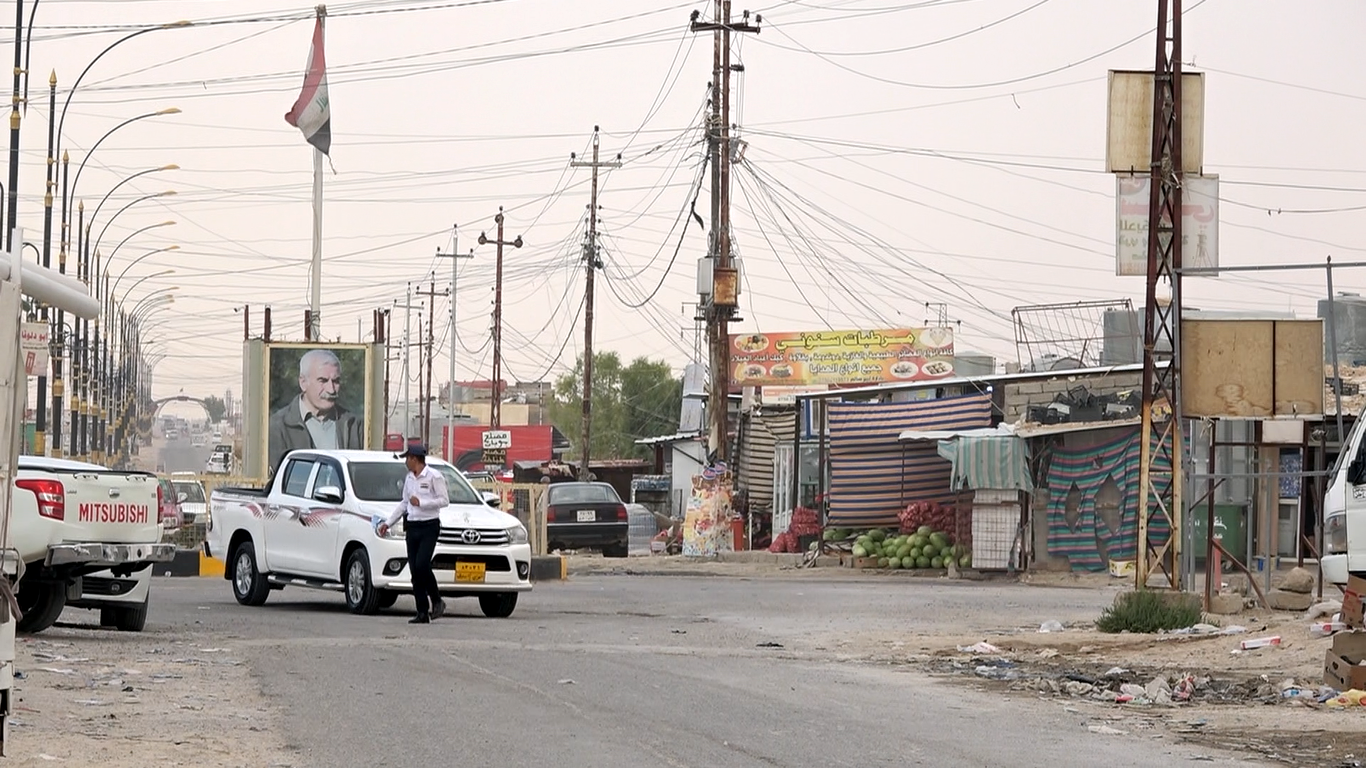The administration of Nineveh province decides to appoint a deputy for Shingal (Sinjar) mayor whom it does not recognize. The recently appointed deputy mayor is to receive instructions from Nineveh province not the mayor.
Jalal Khalaf, former mayor of the sub-district of Gir Ouzer, has been appointed last April by Nineveh administration as deputy mayor for the war-torn Shingal Ezidi-dominant district. The deputy mayor does not attend current mayor's office.
Khalaf says he paid a visit to Nineveh in April to meet the governor but he was not there. The governor deputy told him he has been appointed as mayor deputy because he lives in Shingal, till a new administration comes to office.
The governor of Nineveh does not admit the current administration of Shingal, mayor office. They consider Shingal mayor who is in Duhok as the legitimate mayor office, Khalaf added.
"I am officially deputy mayor. I have been told I am free to attend office or not but I am the official representative and any delegation by Iraqi government or NGOs come to Shingal to be received by me."
"I am officially deputy mayor. I have been told I am free to attend office or not but I am the official representative and any delegation by Iraqi government or NGOs come to Shingal to be received by me."
Shingal, located 120 km west of Mosul, center of Nineveh province, used to be home to over 100,000 adherents Ezidi ethno-religious minority and one of the disputed territories between Baghdad and Erbil. Ezidis also live in Shekhan, Bashiqa and other areas in Duhok Northern Province.
Seized in August 2014 by ISIS militants whom accused the Ezidis of being “devil worshippers,” Shingal has been the scene of tragedy: a genocidal campaign of killings, rape, abductions and enslavement, and the surviving community fled to safer-heaven IDP camps in the adjacent northern Kurdistan region.
Out of 0.5 million population, over 350,000 Ezidis fled Shingal to Kurdistan region and Shingal Mount. About 100,000 migrated to Europe, USA, Canada and Australia and over 100,000 are yet living in IDP camps in Kurdistan.
The complex texture of the security and administrative situation in Shingal is an aftermath of ISIS reign In the Ezidi-dominant region of Shingal, only three thousand square km, Baghdad federal and Erbil regional governments compete to establish their rule: three local administrations want to administer the district, and eight different security forces are deployed, some loyal to Baghdad, others to Erbil.
The militant groups are Iran-backed Shiite Popular Mobilization Forces PMF, Shingal Protection Units (YBSh) and Ezidkhan Asayish which are pro-PKK (Kurdistan Workers’ Party fighting Turkey and controlling some regions in Iraq), local Police, Iraqi army, Ezidkhan Peshmerga and KRG's Peshmerga (Kurdish fighter).

Jalal Khalaf, former mayor of Gir Ouzer sub-district. Photo Facebook account of Khalaf.
Currently Shingal has two mayors, one in Duhok and another in Shingal.
Mahma Khalil, member of Kurdistan Democratic Party KDP, one of the leading Kurdihs parties used to control Shingal region ahead of IS attacks in 2014, is mayor of Shingal yet based in Duhok .
The pro-PKK forces also founded Autonomous administration downtown in Shingal supported by thousands of militants. The pro-PKK groups claim they have tookd part in liberation of Shingal from IS and all their members are locals of the Ezidi community.
Khalil could not go back to Shingal as Iraqi troops and pro-PKK control the region while KDP and Kurdish forces deserted the region following IS attacks. Currently 1,000 Peshmerga (Kurdish) fighters are based in Shingal and paid by the Kurdistan Regional Government KRG yet the upper hand is for Pro-PKK and Iraqi troops.
Fahad Hamid, acting mayor of Shingal representing Khalil, said that five months ago Khalaf told him he has been appointed as deputy mayor. "I told him no problem; he came three times in two weeks and did not come back."
Hamid said he cannot take any action against him because he is not paid by them. "Nineveh administration does not deal with us."
"Nineveh administration does not deal with us."
Hamid says he has offered the post to Khalaf few years ago but then he preferred to become acting mayor of Gir Ouzer in 2019 and resigned last September.
Khalaf was promoted to deputy mayor but he has no office since Nineveh does not recognize Shingal mayor office.
"I am a strong candidate for the position of mayor in the new administration.
KirkukNow has contacted Nineveh administration several times but no one responded.
The Iraqi army is trying hard to implement Shingal agreement concluded by Erbil and Baghdad last October which aims at restoring stability and reconstruction to the region through withdrawal of all armed groups from the area, restore a fresh local administration by appointment of a new mayor, reconstruction and supply of basic public services in order to pave the way for volunteer return of thousands of Ezidi IDPs living in tens of camps in the adjacent Kurdistan region.

Fahad Hamid, acting mayor of Shingal. Photo by mayor's office.
Part of Shingal people reject the administration because they were not involved in the drafting process.
Faris Harbo, member of Shingal autonomous council, close to pro-PKK groups, said they do not interfere in the issue of the mayor office and positions.
"We are with the public. Any one nominated for a position should be approved by people," said Harbo.
"We are with the public. Any one nominated for a position should be approved by people,"
Since the military defeat of IS, discord over security arrangements, public services, and the lack of a unified administration, have plagued victims among the vulnerable impoverished community.
Ezidis blame Baghdad and Erbil, particularly KDP who was running the region up to 2014, for leaving them to face genocide at the hands of ISIS, armless and defenseless.
Over 3,000 Ezidi women, girls and children were freed from ISIS slavery while nearly 3,000 kidnapped women and girls are still missing after many were trafficked and enslaved in other parts of former IS territory in Iraq and Syria.





